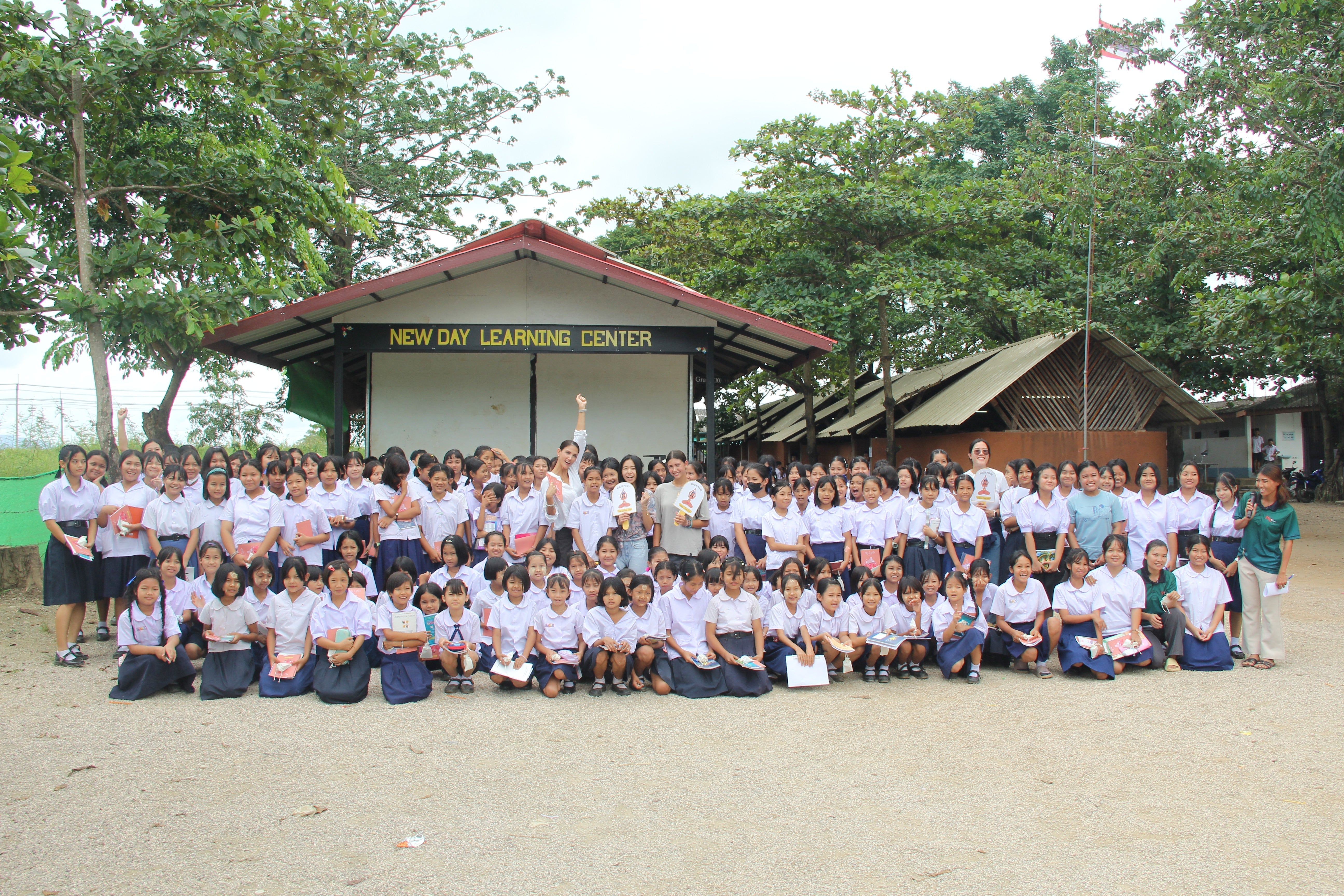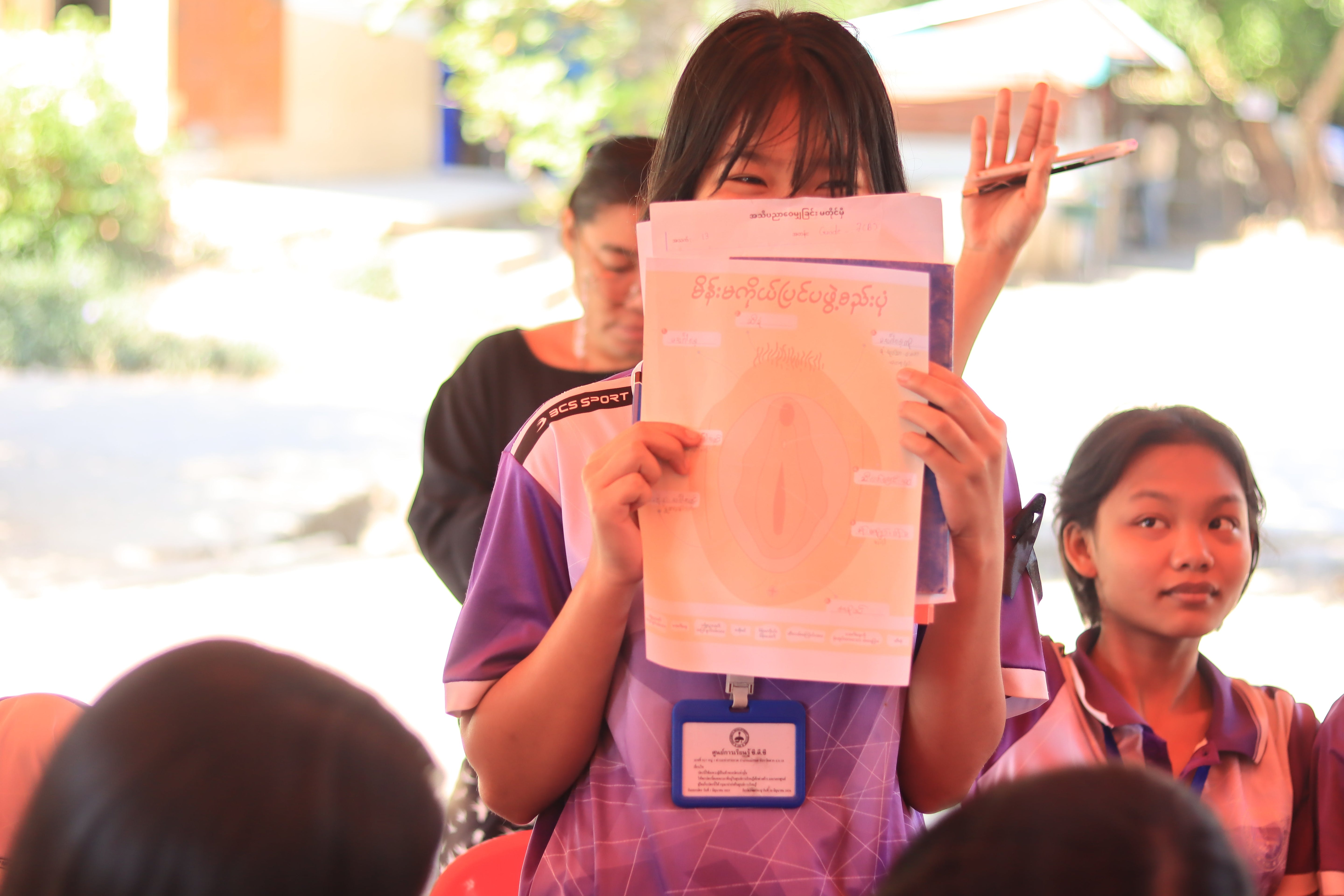
Being with Fire: Traditional Thai Healing After Childbirth (with Nari Delivery)
In Thailand, before mothers can fully step into their role, they must first enter into a period of healing, renewal, and care after childbirth, known as “Yoo Fai” / “อยู่ไฟ” which translates to “being with fire”.
This centuries old postpartum practice is a way for mothers to restore balance, release their exhaustion, and protect their long-term health after giving birth.
Modern medicine has introduced new methods of postpartum recovery, but Yoo Fai remains respected and meaningful in Thai culture and Thai Traditional Medicine (TTM).
Vira spoke with Nari Delivery, an Applied Thai Traditional Postpartum Care service, to share more about the Yoo Fai practice.
In Nari’s words:
“Yoo Fai” in Thailand refers to a traditional process of caring for women after childbirth. It involves various manual therapies and the use of herbal treatments — both applied externally and taken internally as herbal remedies.
The goal is to help the body recover to its pre-birth state: restoring the internal organs, caring for the body, and improving the skin’s condition, so it looks healthy, radiant, and has good circulation.
For those who have a natural birth or no complications during birth, it’s recommended to Yoo Fai for 7-10 days. For those who have had a Cesarean section or more complications during birth, 30-45 days.
Most of the steps in “Yoo Fai” focus on warming the body, which is believed to enhance the functioning of bodily systems.
According to traditional Thai medicine, after childbirth, a woman is considered to have lost balance of the four elements which make up the body: earth, water, wind, and fire. The imbalance causes the body’s functions to weaken compared to before pregnancy. While the body can gradually recover on its own, traditional Thai medicine has developed methods to accelerate and support recovery, helping new mothers regain strength more quickly.
The core belief is that warmth supports healing: it helps the uterus shrink, expels น้ำคาวปลา (postpartum lochia), stimulates blood flow, relieves aches, and soothes both body and spirit (Thailand Foundation, 2021).
It’s also rooted in Thai concepts of elemental health and balance, where childbirth supposedly disrupts the body’s equilibrium, especially the “fire” element. But Yoo Fai restores this warmth and “flame” internally in the body.
There was a period when “Yoo Fai” declined in popularity in Thailand because improper practice of it sometimes caused harm. These issues were often due to caregivers’ lack of proper knowledge, poor assessment of the mother’s condition, or unsafe, non-standardized procedures.
Today, however, Thai traditional medicine has trained practitioners with accurate knowledge and expertise adapted to modern standards. This integration of traditional and modern medical approaches ensures that “Yoo Fai” is practiced safely, effectively, and in line with universal health standards, with continuing research to support its benefits.
Here’s an overview of the Yoo Fai process:
-
Muscle massage
-
Herbal compress or heated brick compress
-
Abdominal massage (“goi thong” technique)
-
Hot salt pot compress
-
Herbal steam or eye fumigation
-
Warm herbal foot soak
-
Herbal smoke-sitting therapy (sitting over burning herbs/charcoal)
-
Breast massage
-
Herbal body scrub and mask
-
Warm herbal bath
-
Abdominal binding for uterine contraction
Other therapeutic methods are also integrated into care, such as:
-
Relaxing oil massage
-
Acupuncture
-
Use of Chinese herbs
-
Hot stone therapy
-
Gua Sha (scraping therapy)
-
Slimming and body-shaping massage for fat reduction
Back to Vira’s words… more about the Science:
We, at Vira, take an evidence-based approach to women’s health: we look holistically at the evidence of history and hear from women’s experiences.
Medically, there is limited scientific evidence to “prove” the traditional claims of Yoo Fai, but many aspects of the practice align with modern health benefits, which we think are important to emphasize.
-
Heat therapy and staying warm eases muscle soreness and improves circulation (HDMall Thailand, 2024).
-
Breathing in different herbs from steam rooms could have anti-inflammatory and soothing properties.
Ingesting certain herbs and practicing Yoo Fai were actually studied in Thai postpartum women at public hospitals and the statistically significant results showed that they had increased milk production and an earlier recovery (Journal of Health Science of Thailand, 2025).
Doctors do caution that practices involving intense heat or prolonged fire exposure in a small room can be unsafe, so if you are trying Yoo Fai, please take care (PMG Hospital).
Ways you can try Yoo Fai at home yourself are lying near a warm fire, putting a candle underneath one’s bed, using heated herbal compresses, undergoing steam baths with medicinal herbs, or soaking in warm, herby baths.
The warmth from the candles, heated rooms, or flame of the fire is also believed to:
-
Expel “wind” and toxins from the body
-
Restore balance to the womb and circulation
-
Relieve aches and pains and any tensions from childbirth
-
Reduce the risk of future illness
-
Promote relaxation and emotional balance
Yoo Fai is nurturing and protective, and is often supported by midwives or members of the family.

Conclusion: Yoo Fai is a Cultural Care Practice
Yoo Fai is a Thai expression of honoring motherhood. Whether it is observed in its traditional form or reimagined in modern postpartum care, its goal remains to comfort, restore, and celebrate the mother’s body.
If you are a new mother, or supporting a new one, consider how you can integrate elements of Yoo Fai, with all its warmth, nourishment, and restorative care, into your postpartum journey safely.
We wish to end on a quote that summarizes the importance of the history of women healers.
Women have always been healers. They were the unlicensed doctors and anatomists of
western history. They were abortionists, nurses and counselors. They were pharmacists,
cultivating healing herbs and exchanging the secrets of their uses. They were midwives,
travelling from home to home and village to village. For centuries women were doctors
without degrees, barred from books and lectures, learning from each other, and passing on experience from neighbor to neighbor and mother to daughter. They were called "wise
women" by the people, witches or charlatans by the authorities. Medicine is part of our
heritage as women, our history, our birthright.”
– Barbara Ehrenreich, “Witches, Midwives and Nurses: a History of Women Healers”, 1972
Yoo Fai is certainly part of Thailand’s heritage of traditional thai medicine, and we hope to uphold and celebrate this healing tradition through our work at Vira.
Learn more about Nari:
Nari provides both professional Breast feeding care and Thai Traditional Postpartum Care at their studios and the customers' homes.
All processes are conducted by practitioners with 5 - 30 years of skillful Applied Thai Traditional experience (B.ATM, M.ATM).
Nari offers 3 packages, “Rebalance”, “Essential”, and “Special” Yoo Fai practice.
The sessions last from 2 to 7 hours depending on the individual experiences of each mother.
Get in touch to learn more and sign up for a Yoo Fai experience.
☎️ 081-592-9154
⭐️ Facebook: Nari Mommy Supporter
https://m.facebook.com/NariDelivery/
⭐️ Instagram: https://www.instagram.com/narimommysupporter/
⭐️ Tiktok: https://www.tiktok.com/@narihomeymassage?_t=ZS-8yfdRnHGtlY&_r=1
⭐️ Lemon8: https://s.lemon8-app.com/s/GgFwURddhT
❤️ Line ID: @rcr3535l
💖 Line@: line://ti/p/@rcr3535l
⭐️ Line: https://lin.ee/3Z7SS25




